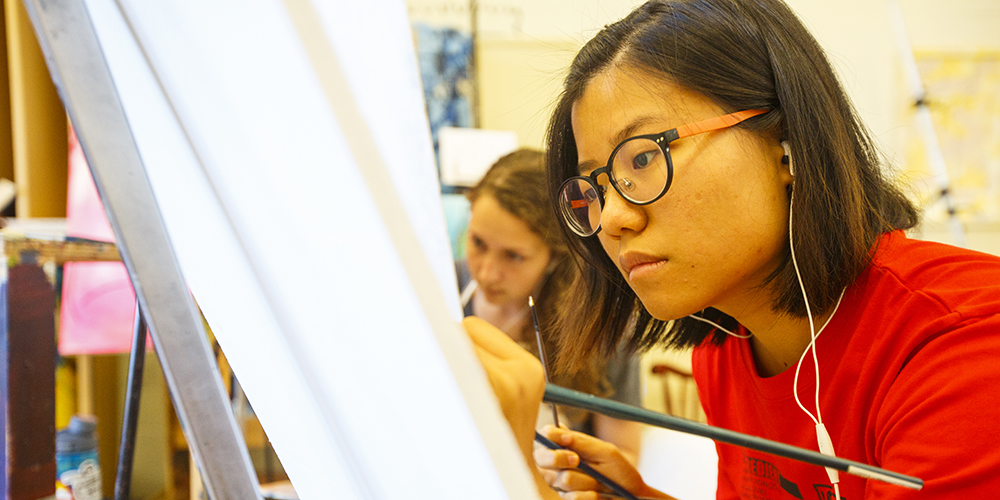Magazine
This excerpt is adapted from an article that was first published in the October 2019 issue of Christianity Today.
Questions about human purpose and meaning are essential for the health of the human person, but when do we ever take the time to explore them at the level they deserve? And when are we in an environment with experts who can help us with them? While the value of a liberal arts education and the place of religion in the academy may be in doubt at the moment, questions of meaning, purpose, and the “good life” are very much alive and well. And when we ask what human flourishing is and we fail to take God into account – as so many do – the consequences are devastating.
Without a proper Christian framework for understanding our world, we tend to belittle God’s good creation or to fragment life into compartments, where we bow to God for the “spiritual” parts of life and ignore him for the remainder. Instead, learning to love God’s creation as just that, God’s creation, puts us into a fruitful place of receiving and using the creation rightly as gifts from our loving God. Delighting in God’s gifts as just that, gifts from God, enables us to live in a healthy place, neither denigrating nor deifying creation, and enables us to hear God’s calling for us in the world he has given.
Because God has set us in a creation that he repeatedly called “good,” Christian theology addresses all spheres of life, not just church life. It asks novelists about books, painters about art, actors about the stage, historians about the consequences of the slave trade. These Christians immersed in the liberal arts are vital to the rest of us.
A Christian liberal arts education can prepare students not simply for a job, or even a career, but for vocation – the wisdom that hears God’s call to respond with the whole self to produce meaning and purpose in God’s world. Engaging a broad swath of learning in the concentrated context of Christian higher education can encourage a fair-minded, holistic approach to life, grounded in the Scriptures and the faith of the church through the ages.
Is education at a Christian liberal arts college the complete answer to the problems of higher education? Will its students emerge as completely equipped Christians? No, obviously not. But, with all its imperfections, it supplies a depth and breadth of tools and resources unavailable to the local church and a Christian scholarly context either unavailable or largely absent at secular universities. It will help us live out one of the ways we honor God and our neighbor: by taking this world seriously.
Christians desperately need deep learning, not only in theology but in the wonder of God’s creation. What a gift it is to the church and to the world when a Christian liberal arts college graduates students who are not simply interested in a job or a career but who see their work as a calling. Whether they enter the laboratory, the classroom, or the courtroom, whether they rear children or serve as accountants, they enter their work not as a distraction from their faith but as a vital expression of it.
Kelly Kapic is professor of theological studies at Covenant College (Lookout Mountain, GA). He is most recently the author of The God Who Gives: How the Trinity Shapes the Christian Story and co-author, with economist Brian Fikkert, of Becoming Whole: Why the Opposite of Poverty Isn’t the American Dream.



